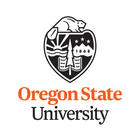A degree in Chemistry opens a gateway to the interface of science and engineering in a broad range of areas, for example, pharmaceuticals, batteries, solar cells, polymers, forensics, biotechnology, materials science, semi-conductors, chemical processing, electronics, agricultural and food science, medicine, toxicology, oceanography, and environmental science.
The BS degree in Chemistry features two tracks, each with a chemistry core and a selection of accompanying options. Students in either track or any option with good academic records and letters of recommendation will be well prepared and competitive for continued graduate education in chemistry or related areas.
Track One is well suited for students intending to pursue a graduate degree in chemistry or a closely related area. It provides the most rigorous and complete chemistry background and the most extensive laboratory experience. The curriculum is approved by the American Chemical Society (ACS) and has two options: advanced biochemistry and advanced chemistry. Both options include 612 credits of career-supportive electives (CSE) in advanced chemistry or related disciplines. These CSE courses are approved by the advisor and are intended to strengthen the student's background in areas related to career goals. Students choosing the advanced chemistry option must take at least 3 credits in advanced laboratory courses or research. Track-One graduates are eligible for ACS certification by the department chair and can become full members of the ACS without the requirement of work experience.
Track Two is suited for chemistry majors who want to gain extensive experience in a secondary area, target a particular career direction or continue with graduate education in chemistry or related areas. Track Two options include biochemistry, business, chemistry education, chemical engineering, environmental chemistry, forensic science, materials science, and pre-medicine. The multidisciplinary approach of Track Two enhances preparation and opportunities for employment in electronics, polymers, or biotechnology (the biochemistry, chemical engineering, or materials science options), for careers in environmental science (environmental chemistry option), work in crime labs (forensic science option), or teaching in high schools (chemistry education option). The Track Two curriculum is not approved by the American Chemical Society. It consists of a core of chemistry courses (7981 credits) and a combination of 8 to 11 courses (3037 credits) that defines each option.






